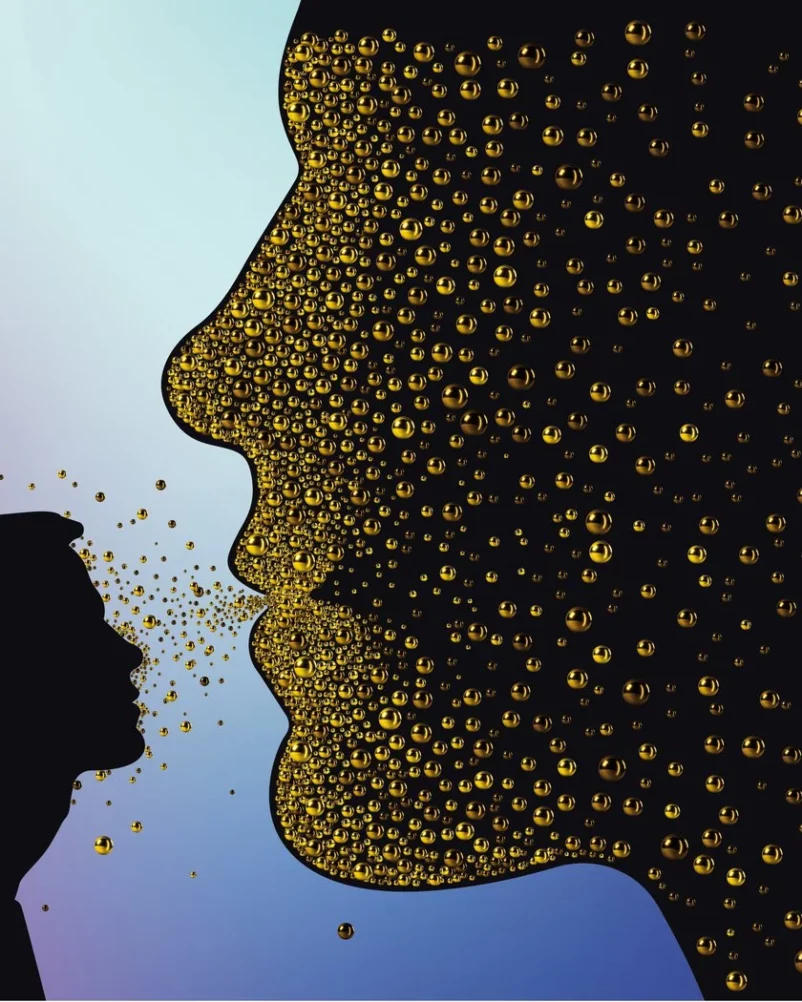
The Pros and Cons of AI Love: Examining the Impact of Artificial Intelligence on Human Relationships
The advent of artificial intelligence (AI) has revolutionized the way humans interact with technology. AI has been used to create virtual assistants, automate mundane tasks, and even develop sophisticated algorithms to predict consumer behavior. But what about its impact on human relationships? In this article, we will explore the pros and cons of AI love and examine the potential implications of AI on human relationships.
The Pros of AI Love
One of the primary benefits of AI love is its potential to reduce loneliness. AI-driven virtual assistants can provide companionship and emotional support to those who are isolated or have difficulty forming relationships. AI can also be used to create personalized experiences for couples, such as virtual dates or romantic getaways. Additionally, AI can be used to help couples better understand each other by providing insights into their behavior and preferences.
The Cons of AI Love
On the other hand, there are some potential drawbacks to AI love. For example, AI-driven relationships may lack the depth and complexity of human relationships. Additionally, AI-driven relationships may be more susceptible to manipulation and exploitation. Furthermore, AI-driven relationships may lead to a decrease in empathy and emotional intelligence, as humans become more reliant on AI for emotional support.
Conclusion
In conclusion, AI love has the potential to revolutionize the way humans interact with each other. While it may provide companionship and personalized experiences, it is important to consider the potential drawbacks of AI love and the implications it may have on human relationships. Ultimately, it is up to individuals to decide whether or not AI love is right for them.
Exploring the Ethical Implications of AI Love: What Are the Risks and Benefits?
The emergence of artificial intelligence (AI) has revolutionized the way we interact with technology. AI has been used to create virtual assistants, self-driving cars, and even robots that can perform complex tasks. Recently, AI has been used to create virtual companions that can provide companionship and emotional support. While this technology has the potential to provide comfort and companionship to those who are lonely or isolated, it also raises important ethical questions about the risks and benefits of AI love.
One of the primary benefits of AI love is that it can provide companionship and emotional support to those who are unable to find it in the real world. AI companions can provide comfort and understanding to those who are struggling with mental health issues, such as depression or anxiety. AI companions can also provide a sense of connection and belonging to those who are isolated or lonely.
However, there are also potential risks associated with AI love. For example, AI companions may not be able to provide the same level of emotional support as a real person. Additionally, AI companions may not be able to recognize or respond to subtle emotional cues, which could lead to misunderstandings or even emotional harm. Furthermore, AI companions may not be able to provide the same level of empathy and understanding as a real person, which could lead to feelings of alienation or loneliness.
Finally, there is the potential for AI companions to be used for malicious purposes. For example, AI companions could be used to manipulate or exploit vulnerable people, or to spread false information. Additionally, AI companions could be used to collect personal data or to target people with unwanted advertising.
In conclusion, while AI love has the potential to provide companionship and emotional support to those who are isolated or lonely, it also raises important ethical questions about the risks and benefits of this technology. It is important to consider the potential risks and benefits of AI love before implementing this technology, in order to ensure that it is used responsibly and ethically.
How AI Love is Redefining Intimacy: What Does it Mean to Love a Robot?
The concept of artificial intelligence (AI) has been around for decades, but its potential to redefine intimacy is only now being explored. AI love is a relatively new phenomenon, and it raises a number of questions about what it means to love a robot.
At its core, AI love is a form of human-computer interaction that involves the development of an emotional connection between a person and a machine. This connection can be based on a variety of factors, including physical appearance, personality, and behavior. AI love can take many forms, from a simple conversation to a full-fledged romantic relationship.
The implications of AI love are far-reaching. For one, it could potentially provide companionship to those who are unable to find it in the real world. It could also provide a safe space for people to explore their sexuality and gender identity without fear of judgment or rejection. Additionally, AI love could provide a way for people to explore their emotions in a safe and controlled environment.
However, there are also some potential drawbacks to AI love. For example, it could lead to a lack of empathy and understanding between humans and machines. Additionally, it could lead to a disconnect between people and their real-world relationships. Finally, it could lead to a false sense of security, as people may become too reliant on their AI partners.
Ultimately, AI love is a complex and fascinating concept that has the potential to redefine intimacy. While it could provide a number of benefits, it is important to consider the potential risks and drawbacks before engaging in AI love. Ultimately, it is up to each individual to decide whether or not AI love is right for them.
The Future of AI Love: What Does the Rise of Artificial Intelligence Mean for Human Relationships?
The rise of artificial intelligence (AI) has been a source of both excitement and trepidation for many people. On one hand, AI has the potential to revolutionize the way we interact with the world, allowing us to automate mundane tasks and freeing up our time for more meaningful pursuits. On the other hand, many fear that AI could eventually replace human relationships altogether.
In reality, the future of AI love is likely to be much more nuanced than either of these extremes. AI is already being used to enhance human relationships, rather than replace them. For example, AI-powered chatbots are being used to provide personalized customer service, allowing companies to provide more efficient and effective customer support. AI is also being used to help people find compatible partners, using algorithms to match people based on their interests and values.
At the same time, AI is not likely to replace human relationships entirely. While AI can provide a level of convenience and efficiency that is difficult to match, it is unlikely to be able to replicate the complexity and nuance of human relationships. AI is still limited in its ability to understand and respond to human emotions, and it is unlikely that it will ever be able to replicate the depth of feeling that comes with a real human connection.
Ultimately, the rise of AI love is likely to be a net positive for human relationships. AI can help us automate mundane tasks and free up our time for more meaningful pursuits, while still allowing us to maintain the depth and complexity of human relationships. As AI continues to evolve, it is likely to become an increasingly important part of our lives, helping us to build stronger and more meaningful connections with one another.
AI Love and the Human Condition: Examining the Impact of Artificial Intelligence on Emotional Connections
The advent of artificial intelligence (AI) has revolutionized the way humans interact with technology. AI has the potential to profoundly impact the human condition, particularly in terms of emotional connections. This article will explore the implications of AI on emotional connections, examining both the potential benefits and drawbacks of this technology.
One of the most significant potential benefits of AI is its ability to provide companionship and emotional support. AI-powered chatbots, for example, can provide a listening ear and offer advice to those who may be feeling lonely or isolated. AI can also be used to create virtual companions, such as the popular AI-powered virtual assistant, Siri. These virtual companions can provide a sense of companionship and emotional support to those who may not have access to real-life companions.
However, there are also potential drawbacks to AI-powered emotional connections. For example, AI-powered companions may not be able to provide the same level of emotional support as a real-life companion. Additionally, AI-powered companions may not be able to recognize or respond to subtle emotional cues, such as body language or facial expressions. This could lead to misunderstandings or miscommunications between the AI-powered companion and the user.
In addition, AI-powered companions may not be able to provide the same level of empathy as a real-life companion. AI-powered companions may be able to recognize and respond to certain emotions, but they may not be able to provide the same level of understanding and compassion as a real-life companion. This could lead to a lack of emotional connection between the AI-powered companion and the user.
Finally, AI-powered companions may not be able to provide the same level of trust as a real-life companion. AI-powered companions may be able to recognize and respond to certain emotions, but they may not be able to provide the same level of trust and security as a real-life companion. This could lead to a lack of trust between the AI-powered companion and the user.
Overall, AI has the potential to profoundly impact the human condition, particularly in terms of emotional connections. While AI-powered companions may be able to provide companionship and emotional support, there are potential drawbacks to this technology. It is important to consider these potential drawbacks when evaluating the impact of AI on emotional connections.


